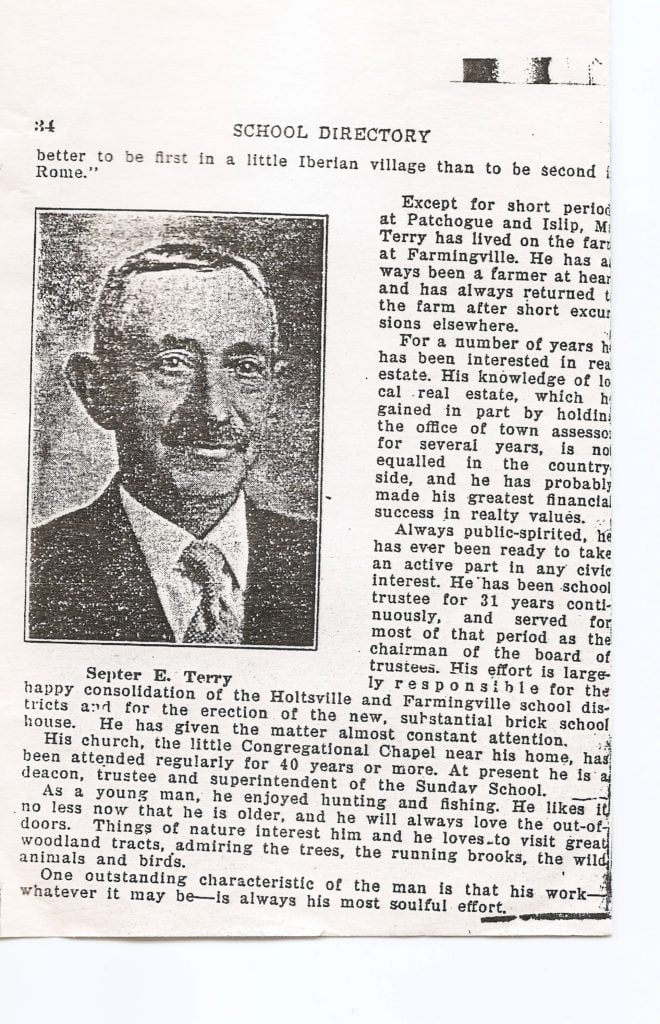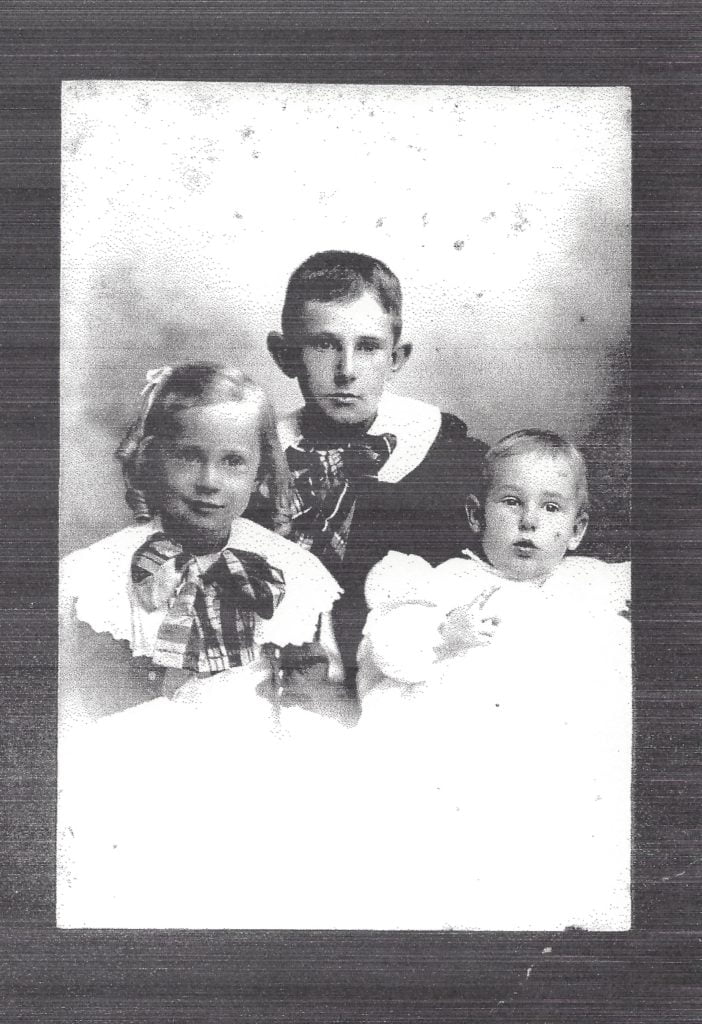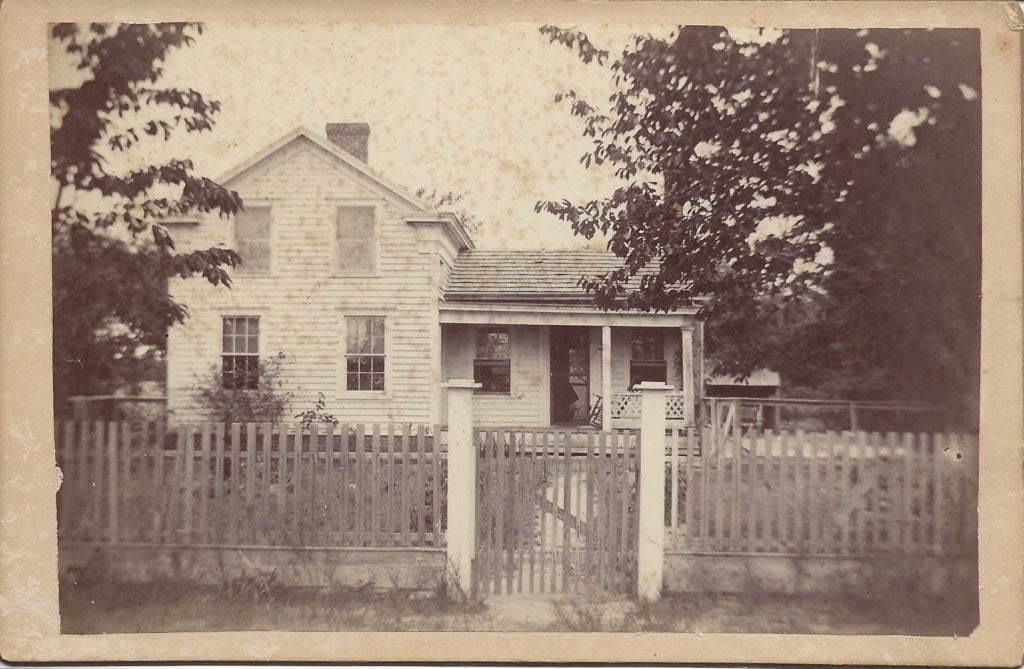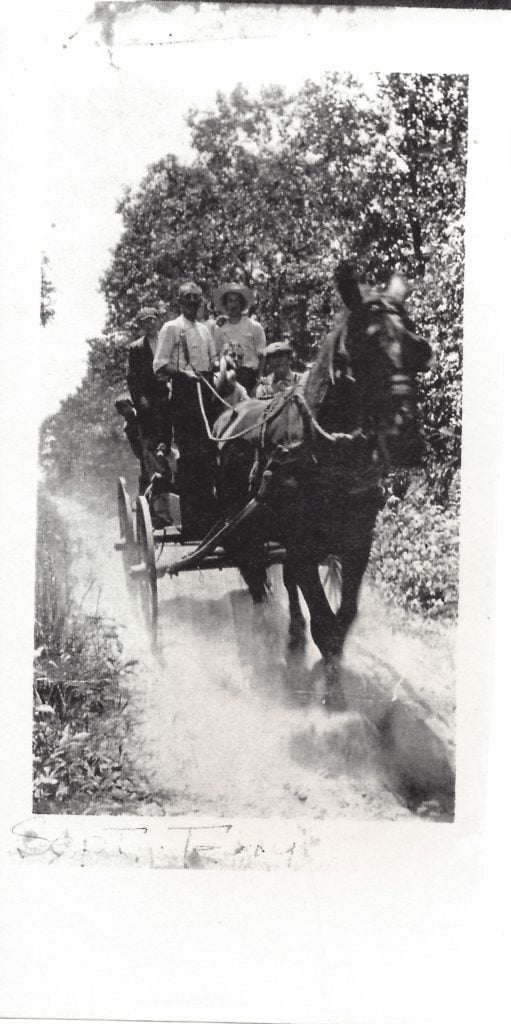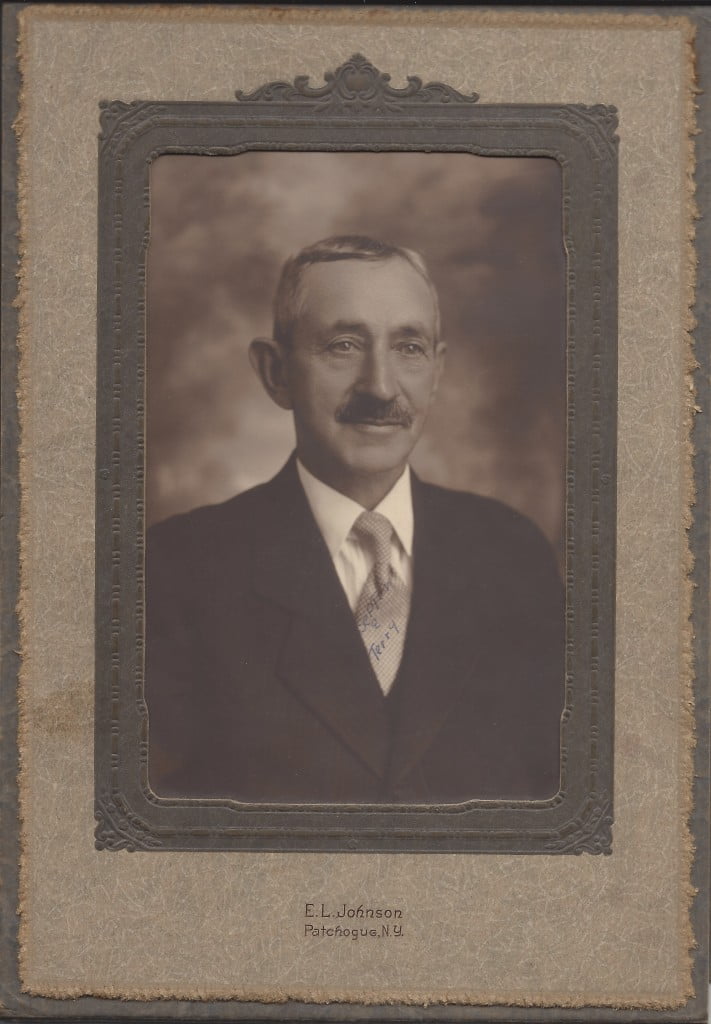Septer Terry
Septer E. Terry, son of Mowbray and Olive Ann Terry, was born on Dec 17, 1866. He was the Grandson of Elijah Terry a founder and one of the first settlers of Farmingville. In his youth, he attended the Bald Hill School House, just like his four sisters and brother, as seen in the Holtsville census of 1880 in the highlighted area.
He attended school until his father passed away when he was twelve. With this sudden death young Mr. Terry had to take up the family work of farming which inevitably took him away from his education. He never lost sight of the need for education and its value which explained many of his actions throughout his adulthood.
Early in his youth Septer Terry quickly found that he was publicly minded, he was ever ready to take an active part in any civic interest. The Long Island Rail Road would install their first rails into Suffolk, in the town of Holtsville, and quickly open a depot called Waverly. This station is where all the farmers in the area, including Mr. Terry, would have most of their seeds and fertilizer delivered.
In 1897, an important shipment was lost due to an incident involving two similarly named stations. The goods meant for the farmers of Farmingville ended up at Waverly Station in Tioga County, NY. It was Septer Terry who took it upon himself to pen a proposal and ensure the passing of the petition to formally change the name of the station depot from Waverly to Holtsville to avoid further confusion. Terry was a member of the Holtsville Agricultural Association and served as its vice president. The purpose of the association was to promote local improvements, improve freight and telephone facilities, and purchase supplies. Below you can read the account from the Mid-Island Mail Newspaper article regarding this incident.
Another aspect of Septer Terry’s civic support was that he was a school trustee of the Farmingville School for 31 years. Generally serving as chairman of the board his effort was largely responsible for the consolidation of the Holtsville and Farmingville schools into a single district. Additionally, it was his efforts which brought about the erecting of the brick schoolhouse which became known as the Waverly Avenue School.
Terry was a member of the Brookhaven Town Board of Assessors for many years. He provided the berries for boards annual strawberry feed which was held at the time. In 1907 while working as an assessor, he found the body of a man whose house he was investigating. It was determined that the man, Ferdinand Wenn, had died ten days earlier from the congestion of the lungs. There was a Suffolk County Telephone Company that provided service locally at that time. It was incorporated in 1903 and connected several towns in the county including Farmingville. Septer Terry served as vice president of the local company. Septer Terry was appointed as an enumerator in 1915 to conduct the census in Holtsville. In 1918 Terry was the leader of the Fourth Liberty Loan Drive in Farmingville and Holtsville. This was a local effort centered in Patchogue to raise money for the First World War. He may have been involved in the preceding drives as well.
Septer Terry worked as a volunteer firefighter in Farmingville and Holtsville. In 1931, he was a director of a new fire department in Farmingville. This department was incorporated into the town of Brookhaven’s departments.
In addition to being a lifelong education advocate Septer Terry was also involved in many other aspects of the community. Septer Terry was very devoted to his faith; born into the Farmingville Congregational Church he loved it so much that is was very common to hear him call it “my chapel”. Through years of service to the church, Septer Terry became a deacon. He also became the superintendent of the Sunday school, was a trustee, all of this, and maintaining his role as a deacon for the congregation. When the church fell on hard times it was Septer Terry who quickly stepped up, without hesitation, to pay from his own pocket in support of the church he so loved. He also dug the hole under the church and installed the pipeless furnace in 1931.
Another advancement he brought to the community came in 1929. Septer Terry, along with many of the others who had attended the old Bald Hill School House, learned that with the building of the Waverly Avenue School their beloved schoolhouse would be torn down. Septer Terry and his classmates founded the Farmingville Reunion Association which bought and preserved the historic schoolhouse. In conjunction with the numerous community outreach projects, he performed Septer Terry was the first in Farmingville to have a telephone in 1919 and a year later he would become the first to have electricity in 1920.
Septer Terry gave his best to whatever he did; with little education, he built his own fortune and became a model citizen by giving his all to his family and community. Septer Terry is a historic pillar in the Farmingville community. He died on March 1, 1946. Below is a copy of his obituary:
